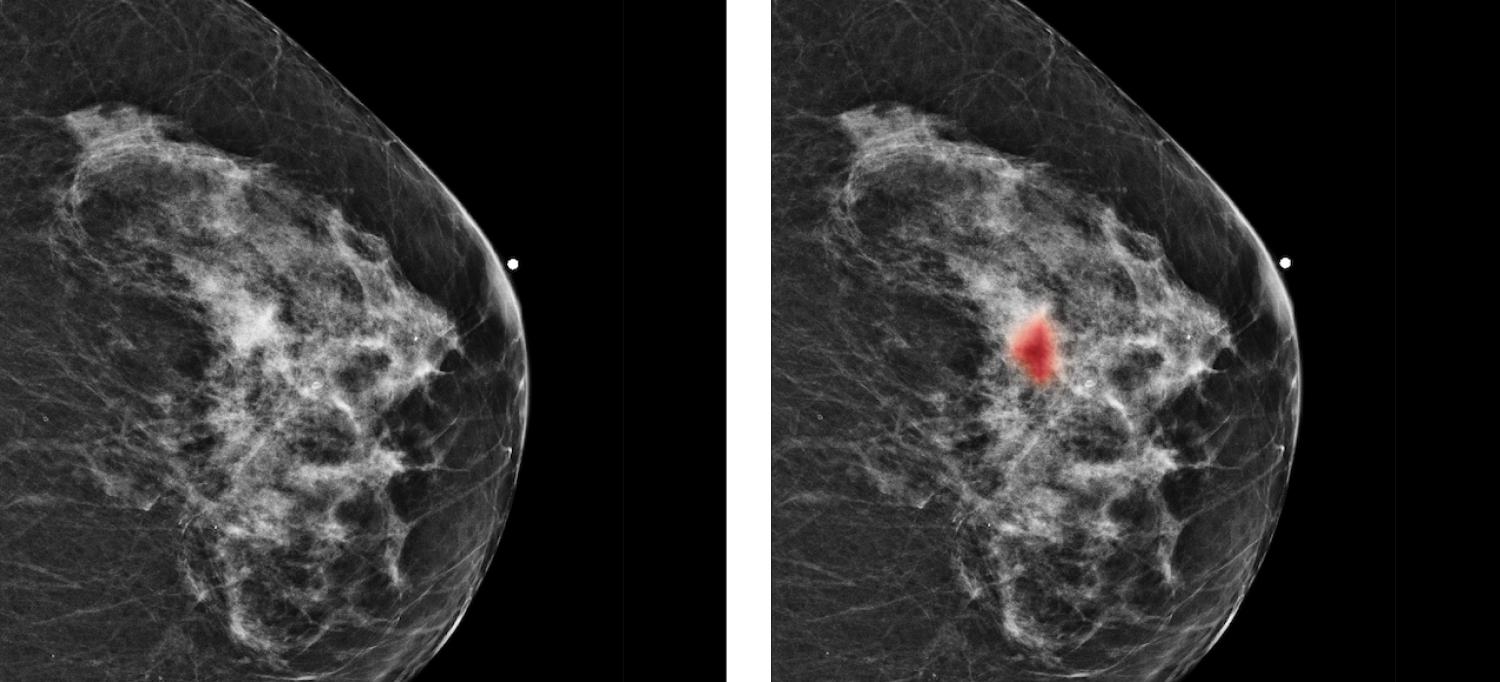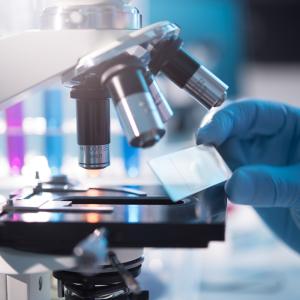
Radiologists missed a subtle mass on a mammography image (left). But it was identified by Perlmutter Cancer Center researchers using artificial intelligence (right, in red) as highly likely to be cancerous. A biopsy confirmed that the lesion was malignant.
Scan Courtesy Artie Shen
Mammography has proven a valuable tool for early detection of breast cancer, significantly reducing mortality, but the X-ray imaging technology is not without limitations, especially for patients with dense breast tissue. The challenge radiologists face is that while mammograms yield high-resolution images, most asymptomatic cancer lesions are small, sparsely distributed, and may exhibit only subtle changes in the tissue patterns.
“Artificial intelligence can be a really good assistant because it helps read images faster, and our initial results found it was more accurate than radiologists,” explains Linda Moy, MD, professor of radiology. Since 2017, Dr. Moy has partnered with Krzysztof J. Geras, PhD, assistant professor in the Department of Radiology at NYU Grossman School of Medicine and a computer scientist affiliated with the NYU Center for Data Science, to develop artificially intelligent computer code that can “read” a mammogram and accurately predict the likelihood of breast cancer.
To train their system to differentiate between normal and suspicious tissue, the researchers fed it more than 2 million images drawn from mammograms performed at NYU Langone Health. “Like facial recognition software, our computers can examine—in a split second—features that are otherwise imperceptible,” notes Dr. Moy. They found that their artificial intelligence system has an accuracy rate of about 90 percent, compared to an overall average of 80 percent by radiologists. “Notably, when radiologists used this tool as a second reader, their performance improved,” says Dr. Moy. “So we want to reach that sweet spot where we use both.”
“Artificial intelligence can be a really good assistant because it helps read images faster, and our initial results found it was more accurate than radiologists.”
—Linda Moy, MD, Radiologist with Perlmutter Cancer Center
The technology is also being developed for ultrasounds of the breast, sometimes ordered to validate the findings of a mammogram. Dr. Moy projects that it could be available for clinical application at NYU Langone within a year for ultrasounds and within two years for mammograms.

